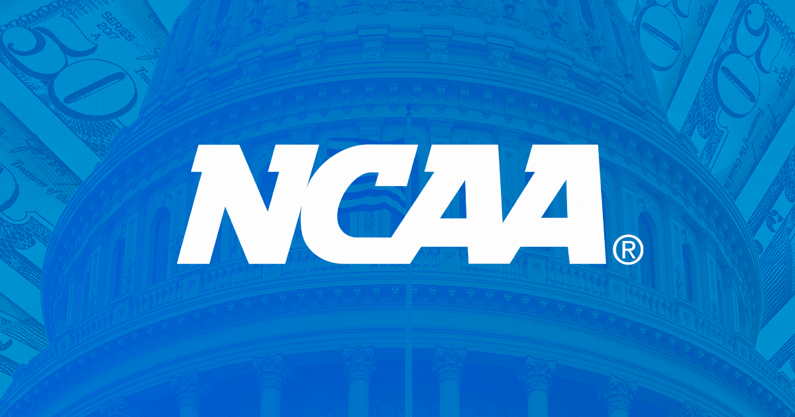NLRB's L.A. Region issues complaint against USC, Pac-12, NCAA

National Labor Relations Board (NLRB) Region 31-Los Angeles Regional Director Mori Rubin issued a complaint Thursday against USC, the Pac-12 Conference and the NCAA as joint employers of Trojans football and men’s and women’s basketball players. Rubin’s issuance of the complaint represents NLRB General Counsel Jennifer Abruzzo‘s decision to litigate the case. There will be a hearing with an NLRB Administrative Law Judge on Nov. 7, 2023 in Los Angeles.
The complaint alleges that the three respondents “maintained unlawful handbook rules and unlawfully misclassified scholarship and non-scholarship (‘walk-on’) women’s and men’s basketball and men’s football players as mere ‘student-athletes’ rather than employees entitled to protections under the National Labor Relations Act,” according to a press release.
The complaint and the scheduled hearing provide a timeline of one of the multiple legal challenges to the NCAA.
The NLRB only has authority over private employers but the complaint states “at all material times,” USC was a member of the Pac-12 and NCAA, and the institution agreed to follow their rules and standards. The complaint states the Pac-12 and NCAA “possessed and/or exercised control over the labor relations policies” of USC football and basketball players.
“The conduct of USC, the Pac-12 Conference, and the NCAA, as joint employers, deprives their players of their statutory right to organize and to join together to improve their working and playing conditions if they wish to do so,” Abruzzo said Thursday in a statement. “Our aim is to ensure that these players, as workers like any other, can fully and freely exercise their rights.”
Complaint follows NLRB Region 31 finding merit in charge
The complaint follows NLRB Region 31 finding merit last December in a charge that the National College Players Association (NCPA) filed against USC, the Pac-12 and NCAA in February 2022. The parties didn’t settle, so Rubin issued the complaint Thursday.
In September 2021, Abruzzo issued a memo to the NLRB’s Regional offices that provided guidance regarding her position that some college athletes are employees under the National Labor Relations Act (NLRA). the NCPA subsequently filed the charge.
The 11-page complaint issued Thursday alleges USC, the Pac-12 and NCAA have violated the NLRA. It specifically highlights some of USC’s policies regarding social media and interviews with the media.
Top 10
- 1Breaking
Kevin O'Sullivan
UF coach takes leave of absence
- 2
Jordyn Tyson injury
ASU reveals WR's status
- 3Hot
Tony Vitello
Vols coach to MLB
- 4
Heisman Odds shakeup
Big movement after Week 8
- 5
SEC fines Texas A&M
Faking injuries is costly
Get the Daily On3 Newsletter in your inbox every morning
By clicking "Subscribe to Newsletter", I agree to On3's Privacy Notice, Terms, and use of my personal information described therein.
The complaint cites the USC Athletics Student-Athlete Handbook and its Social Media Policy and Guidelines, which according to the complaint have stated, “Put your viewing setting on ‘Private’ so only your friends can see your postings.”
A section of the USC Athletics Student-Athlete Handbook regarding interviews allegedly stated, “We will contact you and work around your athletic, academic and social schedules. You’ll be asked to come to the sports information office at an agreed-upon time to be interviewed in person or to conduct a phone interview…”
USC, Pac-12, NCAA must respond by June 1
The complaint states “as part of the remedy for the unfair labor practices alleged,” Abruzzo seeks an order requiring the respondents to “cease and desist from misclassifying the players as non-employee ‘student-athletes,'” as well as to reclassify athletes as employees rather than “student-athletes.”
The respondents must file an answer to the complaint by June 1, 2023.
The complaint states, “If no answer is filed, or if an answer is filed untimely, the Board may find, pursuant to a Motion for Default Judgment, that the allegations in the complaint are true.”
The hearing will take place at 12 p.m. ET on Nov. 7 and “on consecutive days thereafter until concluded.”
“The Administrative Law Judge can order ‘make whole’ remedies to make workers whole after being victims of unfair labor practices,” according to the release. “The ALJ’s Decision can be appealed to the Board, who could enforce the ALJ’s Decision or order their own remedies. It could then be appealed to federal appellate court.”